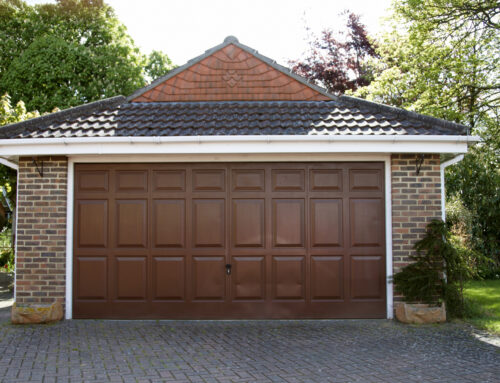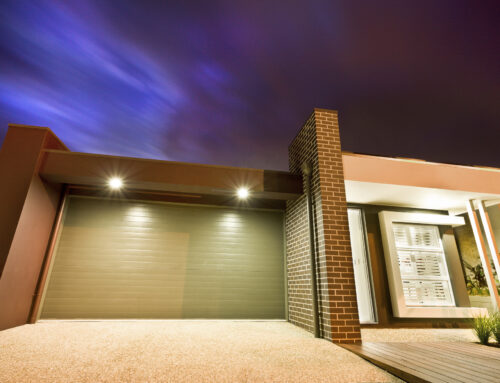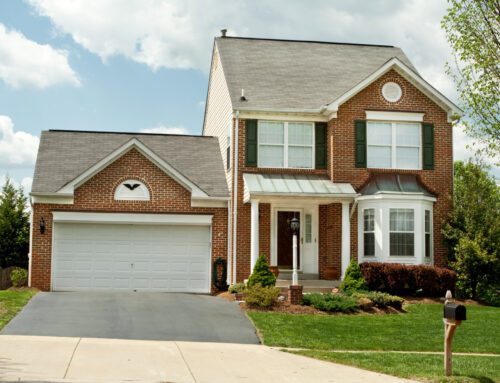If your garage door doesn’t open smoothly, or you can hear a loud sound, you might need a garage door spring. Learn more in this guide.
The garage is one of the most popular installations in U.S. homes today, with about 63 percent of all occupied units across the country boasting one. Arguably the most critical part of your garage is the garage door. That’s because the garage door provides numerous security features for your valuables.
On average, your garage door opens and closes 1,500 times a year. That means that, while the garage door may last decades, the parts involved in its opening and closing will need replacing much sooner and more frequently. One of those parts is the garage door spring.
But how can you tell that your garage door spring is malfunctioning and needs to be replaced? Read on for some of the top garage door spring issues to watch out for.
1. You Notice Rise and Stop Motions
When your garage door spring is functioning appropriately, you’ll notice that it opens and closes easily. The opposite happens when the garage door spring is broken.
You may notice that the door rises a few inches before abruptly stopping completely. That happens due to the safety feature that’s built into your garage door opener.
Every garage door has an inbuilt sensitivity feature. The feature’s function is to control the strength with which your garage door closes or opens. When there’s a problem with the garage door’s spring’s functioning, the feature automatically activates to avert further damage to the garage door.
The best way to deal with the situation is to call a garage door repair expert in Vancouver for help.
2. Your Garage Door Feels Heavy
If your garage door suddenly seems unusually heavy when you operate it, chances are you have a garage door spring problem. Typically, the torsion spring of your garage door supports the door’s weight.
If the torsion spring is broken, then the door becomes dead weight. Trying to hoist it becomes difficult. That’s a sure sign you need to get the spring checked and, if necessary, replaced.
3. Your Garage Door Makes Loud Noise
The garage door torsion springs rotate when functioning. When they tear apart or break, you may start to hear strange sounds because of the energy that gets displaced as the door functions. You may hear loud bangs coming from the garage and suspect something else.
If your garage door is making loud noises, it’s safe to suspect that the spring has an issue. Find someone who knows how to replace a garage door spring to fix the issue for you.
4. The Garage Door Seems Crooked
A garage door spring doesn’t just help your garage door open and close correctly but also ensures that the garage door remains straight. Torsion springs on either side of the garage door pull it on their own. When one of these springs breaks, that side of the garage door is affected.
Unless you fix the problem, your garage door appears crooked. Replacing the garage door spring is the best way to get the door straight and working well once again.
5. You Notice a Garage Door Spring Gap
A gap on your garage door spring can indicate trouble with this vital component. As a garage door spring starts to malfunction, it’ll unwind over time, leaving a noticeable gap in its middle.
Most times, spring gaps are an inch or two in length. These gaps indicate compression in the component that’s forcing the metal away from it.
Unfortunately, garage door spring gaps aren’t something you can address on your own. Call a specialist to tackle the problem.
6. The Garage Door Is Beginning to Bend
While different garage door openers are different, all of them have the same main function – top open and close the garage door. Based on the specific type of garage door opener you use, your garage door may start to bend if the spring gets broken.
How does that happen? Your garage door’s opening force sensitivity protects your garage door as the force gets adjusted all the way up. As a result, the top of the garage door continually gets bent down as it tries to keep the garage door from falling all the way down.
Once you notice that the top of your garage door is getting bent, it could be an indication that you need to replace the garage door springs.
7. Cables Are Getting Loose
Your garage door comes with cables that help it open and close. This is the case for garage doors with extension springs.
Generally, garage door cables function in pulley-like motion. If the extension springs break down, the cables become slack, hanging loosely out of place. Once you notice that cables have become loose, it’s a sign that your garage door springs have a problem.
8. Your Garage Door Moves Slowly
A slow-moving garage door could indicate an issue that a torsion spring needs replacement. Your garage door has a motor that functions at a sound speed if it doesn’t have a problem.
When the garage door spring malfunctions, your garage door may start to take forever to open and close. That’s because the motor’s speed is automatically affected.
9. Your Garage Door Falls Fast as It Closes
Your garage door would move smoothly on its way down, but not too quickly. If the door seems to fall fast as you close it, it’s a sign that the spring may be broken. It may mean that the garage door opener has trouble handling the door’s weight.
Know When to Replace Your Garage Door Spring
A broken garage door spring can make it difficult to operate your garage door. Unfortunately, many people don’t know for sure how to tell when it’s the garage door spring that’s to blame for their garage door woes. If you notice any of the signs we’ve covered in this post, it may be time to start shopping for a new garage door spring.
Are you interested in top-quality garage door replacement parts? Please, contact us today.






Leave A Comment